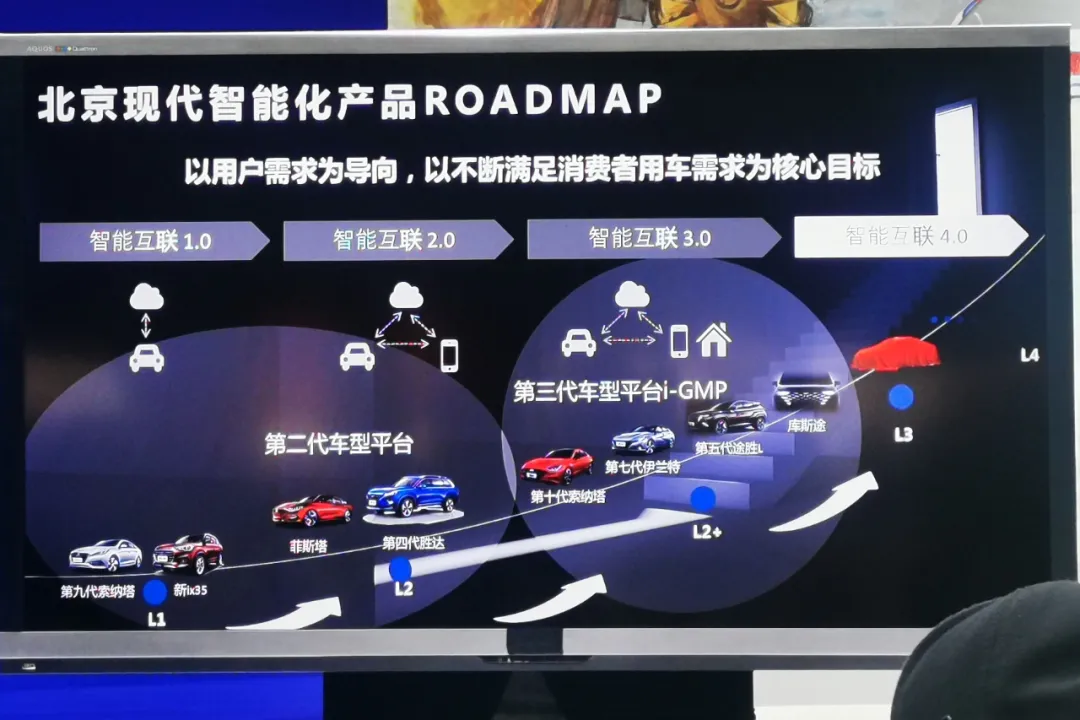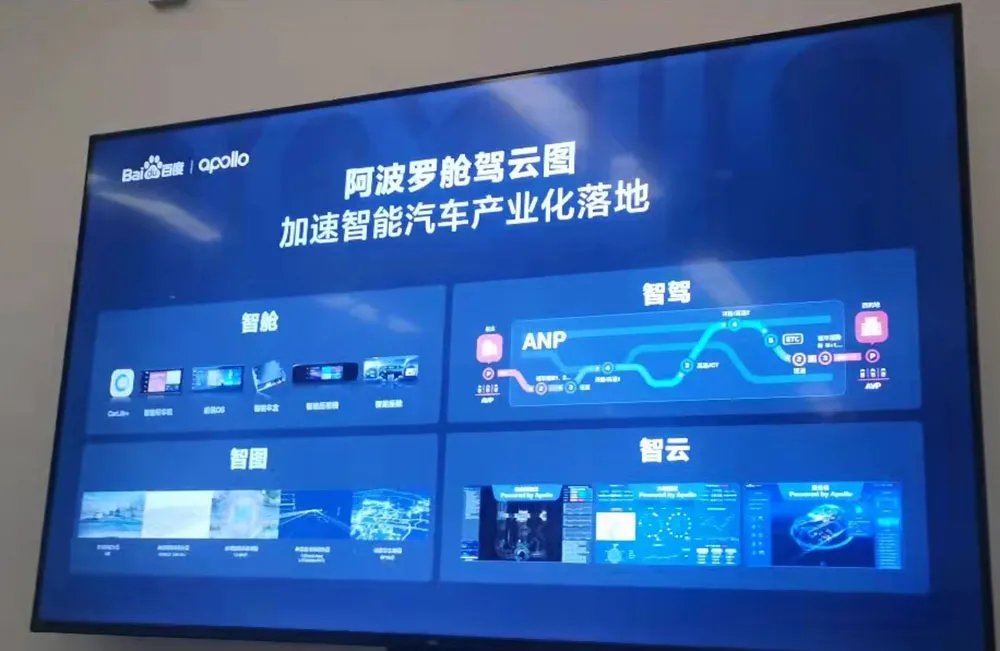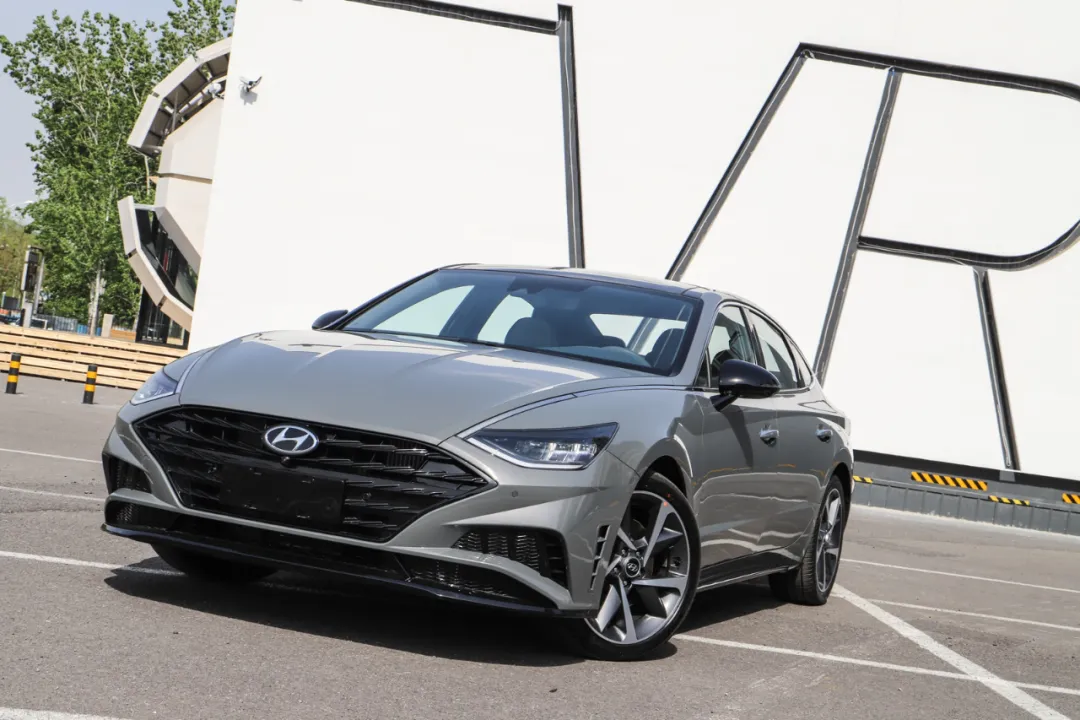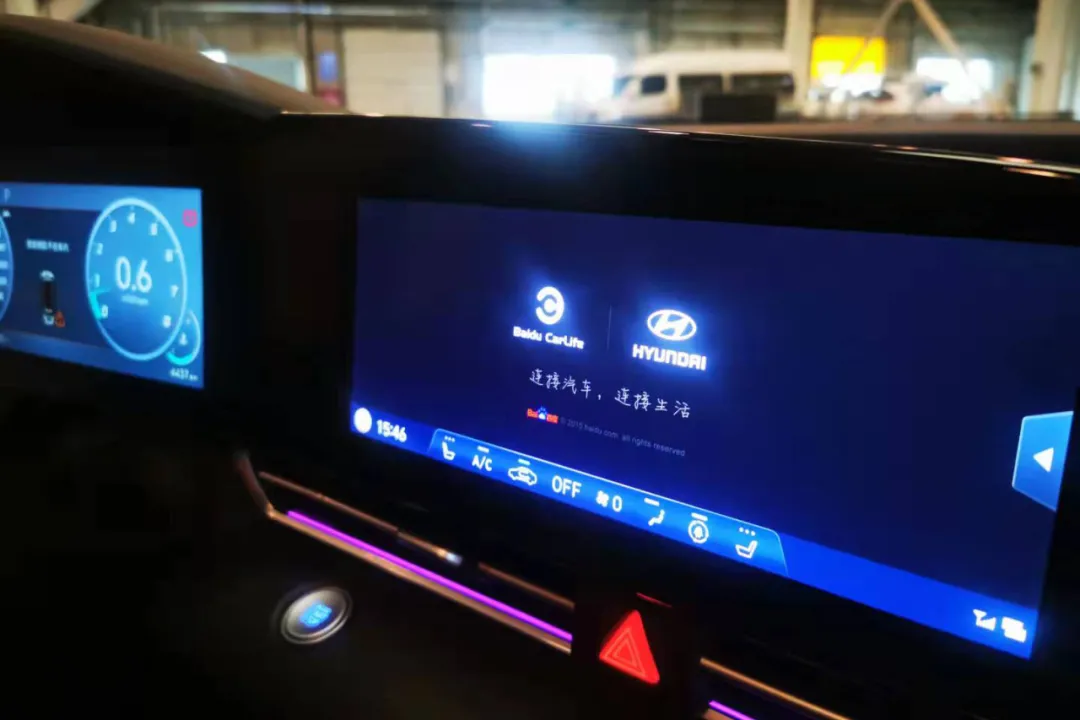Beijing Hyundai – A Strong Ally in Baidu Apollo Alliance
Beijing Hyundai, a JV brand, has been a firm ally in the Baidu Apollo Alliance for over 7 years, applying a great deal of Baidu Apollo’s technology. On September 16th, Beijing Hyundai and Baidu held a press conference, announcing that they will further strengthen their cooperation in the intelligent network-connected vehicle 3.0 system, and extend their cooperation to the intelligent driving field.
So, what exactly has Baidu Apollo empowered Beijing Hyundai with their intelligence?
More Functional Highlights of 3.0 System
At this event, Beijing Hyundai presented the product and functional highlights of their intelligent network-connected 3.0 system, which was developed in collaboration with Baidu. Hyundai mentioned that automobile manufacturers are shifting from providing single products to creating user travel experience, and the development of intelligent network-connected functions are driven by user needs.
Beijing Hyundai’s intelligent network-connected system has undergone three generations of upgrades. The first-generation product, represented by the ninth-generation Sonata, the second-generation product represented by the sporty Festa, fourth-generation Senda, and the third-generation product represented by the tenth-generation Sonata based on the i-GMP platform, the seventh-generation Elantra, the fifth-generation Tucson L, and the Kustod.
While laying out the intelligent cockpit, Beijing Hyundai has also made synchronous progress in the direction of intelligent driving. Assistance driving capability has developed from L1 to L2+. In the future, Beijing Hyundai plans to lay out even higher-level assistance driving and intelligent cockpit technology reserves.

From the perspective of the product design and functional experience of the intelligent network-connected 3.0 system, Beijing Hyundai has mainly focused on three aspects: human-machine interconnection, remote control, and convenience experience.
While laying out the core technology at the bottom, it has also cooperated with the world’s top ICT enterprises with an open attitude. This includes Baidu’s intelligent ecological kernel and seeking to cooperate with domestic mainstream ICT enterprises in travel services, music services, and information services.
In terms of human-machine interaction, as a global automotive enterprise, Hyundai prefers to provide a mature, reliable, and low-cost interactive mode. In the first two generations of products, intelligent navigation and multimedia playback have been achieved, as well as control capabilities such as air conditioning and windows. The 3.0 system has added capabilities such as seat heating, ventilation, and steering wheel heating, as well as 360-degree panoramic imaging. At the same time, Beijing Hyundai has also conducted scenario-based language teaching for voice control, which can better achieve semantic recognition and meet user-customized needs.
Moreover, the highlight of the 3.0 system is its multi-functional linkage control, which is not just a single command execution.The rain wiper control can be linked with the air conditioning system. While spraying cleaning fluid, the air conditioning will switch to internal circulation mode so that there is no smell of windshield fluid during the entire cleaning process. When entering a tunnel, the vehicle will also switch the air conditioning to internal circulation mode and roll up the windows to prevent high concentrations of exhaust fumes in the tunnel.
The optimization of human-machine interaction is also reflected in the interconnection of the same account. For example, with Baidu Maps Navigation, users can use the same account to log in to both mobile and vehicle Baidu Navigation. For instance, when users open WeChat location sharing on mobile Baidu Maps, the vehicle Baidu Navigation can also receive the location information and use it to navigate to a predetermined destination. The seamless connection between mobile and vehicle makes navigation more convenient and driving safer.
In terms of remote control, modern technology focuses on creating a close connection between car and home. Users not only can control home appliances through the vehicle’s voice assistant but also can control the vehicle through smart home devices, including door switching, air conditioning adjustment, and vehicle positioning.
On the mobile side, the 3.0 system has added many intelligent services. Opening the Beijing Hyundai app is no longer just for simple controls, but also for functions such as finding the car and querying the location.
Users can also access the vehicle’s camera through the app and monitor the vehicle’s status 360 degrees for safety. At the same time, basic vehicle information and after-sales services can be accessed through the mobile app.
The mobile app has also integrated the function of a Bluetooth key. Users can enter and start the vehicle without sensors and share the Bluetooth key.
In terms of convenience, the 3.0 system provides modern car owners with new information and music services, including Tingban and QQ Music, and Beijing Hyundai proposes to provide free data usage for three years to ensure the convenient use of these applications.
Cousto, a surrounding MPV model, is designed with a specific rear seat communication feature to ensure smooth communication between third-row passengers and drivers. Meanwhile, multiple forms of adjustment functions are added to the VIP second-row chairs to facilitate boarding and resting for rear passengers.
Based on a large number of user surveys, Beijing Hyundai has designed many small convenient functions to facilitate users of the car, and hopes to bring users a valuable experience through quantitative and qualitative changes.
After seven years of cooperation, Beijing Hyundai gradually deepens its intelligent transformation and does not plan to fight alone. It has long proposed to cooperate with domestic top ICT enterprises to develop technologies such as Baidu Intelligent Network Linkage 3.0, Bluelink, Car-to-Home, voice/facial/fingerprint recognition, etc.
Baidu’s layout in the intelligent automobile field mainly consists of four parts: cabin intelligence, driving intelligence, map intelligence, and cloud intelligence. The cooperation between Beijing Hyundai and Baidu is gradually deepening along these four sections.
In 2014, Hyundai Motor Group established a partnership with Baidu Apollo.
In 2015, Hyundai KIA became the first automaker to integrate Baidu CarLife, a smartphone-connected infotainment system, with its vehicles in the Chinese market.
In 2017, Hyundai’s vehicles implemented Baidu’s intelligent smartphone navigation system Baidu MapAuto and voice recognition system DuerOS Auto.
In 2018, Hyundai KIA and Baidu signed an agreement to deepen their collaboration in the intelligent connected vehicle industry.
At the 2019 Guangzhou Auto Show, Beijing Hyundai revealed the HSMART+ strategy, which aims to provide an eco-friendly, intelligent, and efficient smart life to consumers in three areas: “Smart + Environmentally Friendly,” “Smart + Connected,” and “Smart + Freedom.”
In 2020, the two firms signed a memorandum of understanding to deepen their cooperation in the intelligent connected vehicle field, and Hyundai officially announced that all of its models sold in China, including imported models, would be equipped with Baidu’s Xiaodu Car OS capabilities.
During the 2021 Shanghai Auto Show, the two firms signed an agreement concerning the GEN1 China OEM Platform & Brand collaboration to accelerate intelligent upgrading and promote the commercialization of platform products. Meanwhile, Hyundai KIA and Baidu Apollo would actively promote their deep cooperation in the fields of cloud services, autonomous driving, and safety.
It is apparent that the collaboration between Beijing Hyundai and Baidu has deepened year by year. While Beijing Hyundai offers user demand mining and product functionality definition capabilities, Baidu provides intelligent connected vehicle technical expertise. Currently, the two have reached a stable strategic partnership.

From the understanding of intelligent cockpits and insights into user demands, Beijing Hyundai has kept pace with the trend toward intelligent transformation in automotive products. Its intelligent connected vehicle 3.0 system has fulfilled the basic needs of users for intelligent products. Compared with some new entrants to the industry, however, there is still room for growth, such as a relatively conservative dashboard interaction style and a relatively single application ecosystem. Expectations are high that subsequent OTA upgrades will bring even greater surprises.
Steady Advances in Autonomous Driving, with a 2024 Target
Different from innovative companies, mature companies prefer to keep quiet and get things done. While new startups in the autonomous driving race were gaining the attention of investors, Hyundai Motor had already begun making arrangements in this field.Modern Hyundai Motor Company has expressed that the concept behind developing autonomous driving technology is universal safety and optional convenience.
Universal safety is its fundamental principle, upon which it provides as many basic safety features as possible for all vehicle models, ensuring the safety of drivers, passengers, pedestrians, and other drivers. Optional convenience refers to providing highly mature convenience functions options based on segmented markets in certain situations.

In 2015, Hyundai Motor Company introduced its L2 level highway driving assistance system on the market and plans to introduce L3 level highway driving tests to the market by 2022 and L4 level driving system to urban areas by 2024.
Currently, Hyundai Motor Company has been developing autonomous driving technology in three scenarios: parking, highway, and cities.
As early as 2010, Hyundai Motor Company applied parking assistance system on mass-produced vehicles which could help operate vehicles when parking or leaving a parking space.
In 2018, the mass-produced Hyundai Nexo provided remote intelligent parking assist system, which could park and retrieve the car from a parking space using a smart key outside the vehicle. Currently, Hyundai is applying this system to many other different sized vehicle models, including Hyundai Sonata and Kia K5.
In the highway environment, Hyundai Motor Company adopted a highway driving assistance system that maintains the distance from the preceding vehicle and automatically keeps the lane in 2015. In 2019, the second generation highway driving assistance system was first applied to the Genesis G80 and also added lane change assistance function, demonstrating the technology of large trucks’ queue driving on highways for the first time in Korea.
To provide unmanned taxi and bus services in complex urban road environments, Hyundai Motor Company is developing higher-level autonomous driving technologies.
At the 2016 and 2017 Consumer Electronics Show (CES), Hyundai showcased nighttime autonomous driving technology. During the 2018 Pyeongchang Winter Olympics, Hyundai Motor Company combined urban autonomous driving with highway autonomous driving and demonstrated it on the Seoul-Pyeongchang road and Pyeongchang Olympic Square.
Since 2020, Hyundai Motor Group has been developing and testing urban autonomous driving technology through Nexo and Solati.
Hyundai Motor Company has been developing L1 to L3 autonomous driving technology to become the leading supplier of future cars. At the same time, Hyundai is collaborating with global companies to develop L4-L5 autonomous driving technology.Although traditional automotive giants face great challenges in the process of intelligent transformation, Hyundai Motor has its own logic of evolution. There are believed to be more than one way to the future. The transformation of traditional automotive giants, represented by Hyundai Motor, will most likely create a business model different from that of new car-making forces.
Translated English Markdown text:
Although traditional automotive giants face great challenges in the process of intelligent transformation, Hyundai Motor has its own logic of evolution. There are believed to be more than one way to the future. The transformation of traditional automotive giants, represented by Hyundai Motor, will most likely create a business model different from that of new car-making forces.
This article is a translation by ChatGPT of a Chinese report from 42HOW. If you have any questions about it, please email bd@42how.com.
